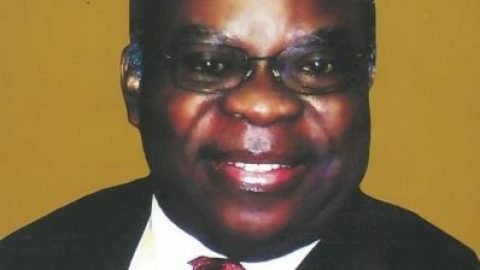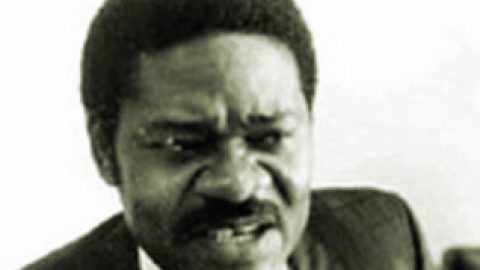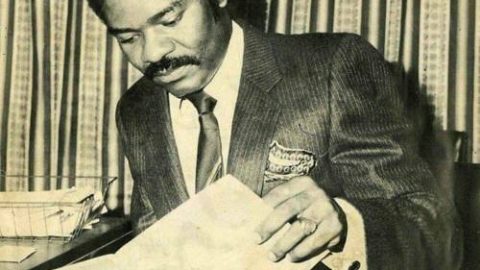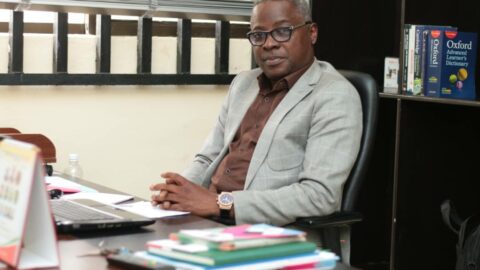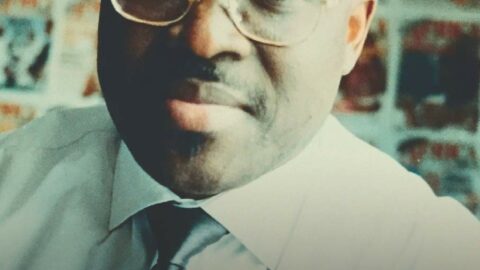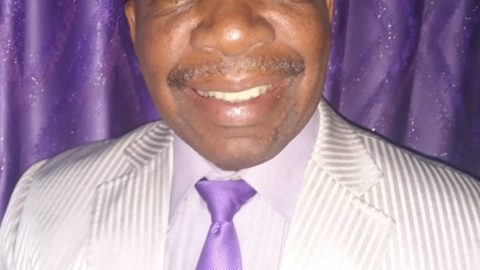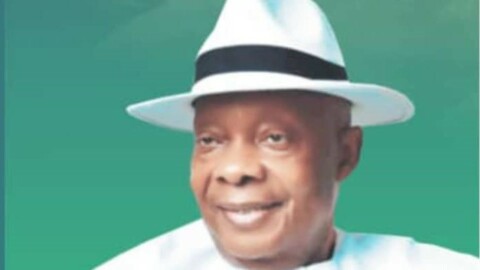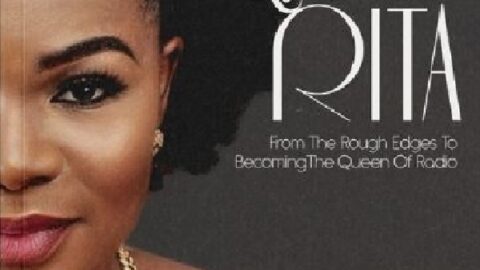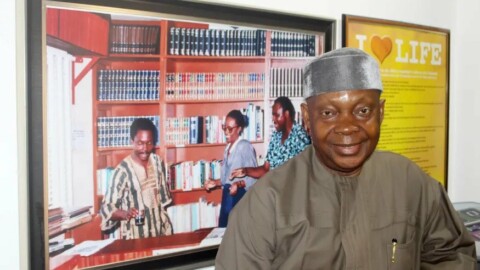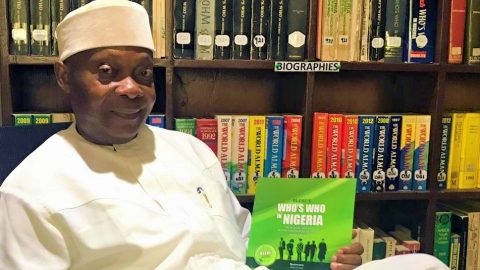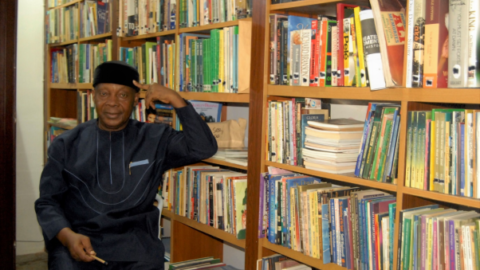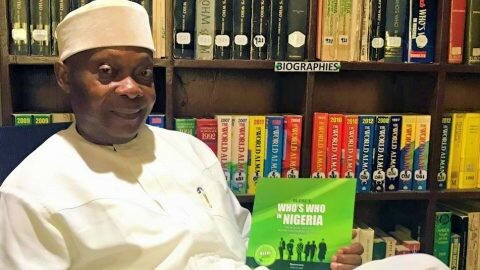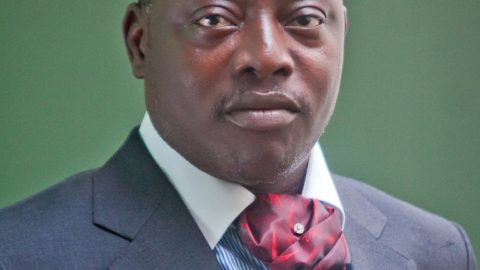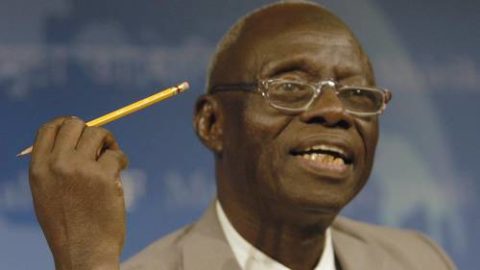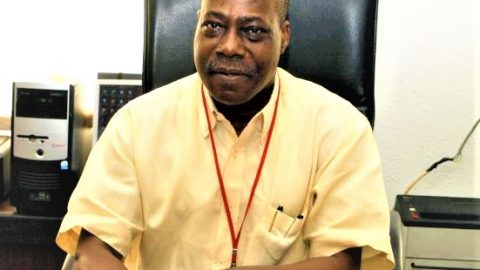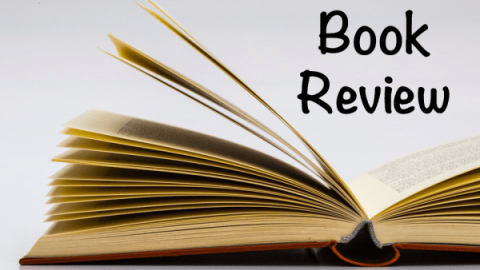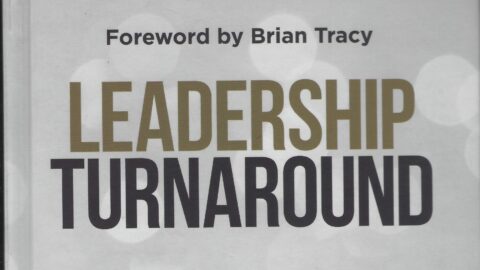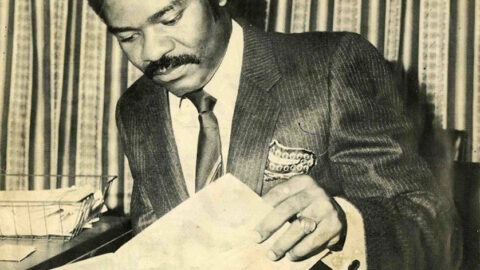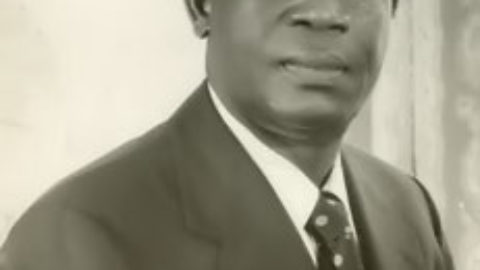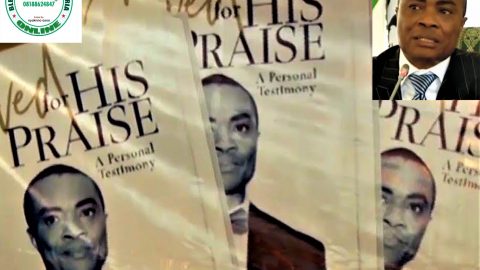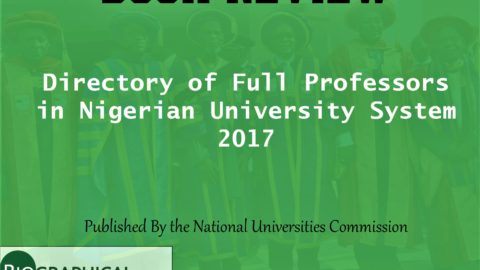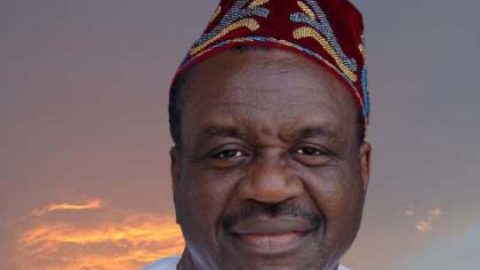I started my working life as a library assistant, five years after he did. But the only dream I had was to work with Newsweek, after reading a copy among the many international magazines supplied to the library. I did, 12 years later. Maybe if I had visited the University of Ibadan library as he did, I might have the same ambition of becoming a Librarian. Just one visit to that library and nothing – not even his uncle’s unyielding refusal to pay his school fees – stopped him. Fifty years on, he counts as one of the world’s greatest librarians. Don’t take my word for it; read all about the tori of Nyaknno Osso in mytori.ng. Start your weekend on an inspirational note. And inspire someone else by sharing the tori and any other one on the site. #career #inspiration #success #books
My uncle refused to pay my fees to study library science instead of medicine, but this is my 50th glorious year as a notable librarian
Permit me, please, to start with this passage from Ecclesiastes: “Whatsoever thy hand findeth to do, do it with thy might; for there is no work, nor device, nor knowledge, nor wisdom in the grave….” (9:10, kjv).
My name is Nyaknno Osso. My mother had eight boys and I was the only surviving one. So, I am my mother’s only child. Out of frustration, she got my father to marry a young beautiful lady…who had 10 children in 10 years and, to God be the Glory, they are all alive and increasing. Praise God.
I am the CEO/Editor-in-Chief at The Biographical Legacy and Research Foundation (BLERF), publishers of BLERF’S WHO’S WHO IN NIGERIA, ONLINE, 1861-2021 and BLERF’S MOST AMAZING 5,000 WOMEN IN NIGERIA, 1861-2021.
This is my 50th year as a librarian. No, let me rephrase that: this is my 50th year of living in libraries in many countries around the world.
It started in 1971.
I was then staying with my uncle, Prof Eno Jumbo Udo, who was then a lecturer in soil science/agronomy at the University of Ibadan (UI).
It was my uncle’s wish that I should study medicine, because as he had noted, I was the most brilliant person in our family, having had one of the best results in the then Eastern Nigeria, not only in primary school at the Methodist Primary School, Ete, in Ikot Abasi Local Government Area, but also at Regina Coeli College, a school founded in 1955 by St. Patrick’s missionaries from Kiltegan, Ireland, to encourage the education of male children in what was then Opobo Division (comprising now of Ikot Abasi, Mkpat Enin, Eastern Obolo local government areas, and some parts of Rivers State). My being in Ibadan, and with my uncle, in January 1971, was to prepare for my concessional exams to study medicine at UI. I did well in science subjects, but I was also good in the arts; for instance, in our West African School Certificate mock examinations, I used 70-something answer sheets in history, the first time in my school that someone did that. I do not know whether that record has been erased. I was also a footballer.
But, of course, God had a different plan of what and who I should be and not what any other person decided for me.
While waiting for the results, a friend, Ukoyen (now late), then a post-graduate student at UI, came and told me he saw an internal vacancy advert, posted by the UI Library, for library assistants. He persuaded me to apply, since I had nothing doing after the concessional exams, noting that it would not stop me from going to study medicine later. Why not?
I went to the library myself and saw the advert.
That was my first time in a library as big as UI’s. When I got to the circulation department – it was the only place I could access then because I was not a student – what I saw was (chuckles) amazing…awesome. I saw more than one million books and magazines well laid out on shelves and the ambience was serene. The ground floor was filled with journals and magazines. I was enraptured; what I saw was different from what I had been seeing in the agronomy lab where I used to follow my uncle to at night. This place was air-conditioned and extremely well-organised.
I decided that I would apply. I did and was invited for an interview which I passed, and I got the job.
Within the first 24 hours of starting work, I had traversed from the circulation department on the ground floor to the seventh floor and the two levels underground. I was simply overwhelmed with the quantum of books, journals, periodicals…archival materials.
There was a section on the seventh floor that even had the recording of Aburi Accord (reached in 1967 at a meeting attended by delegates of both the Federal Government of Nigeria (the Supreme Military Council) led by Lt. Col, Yakubu Gowon and the Eastern Region led by Lt. Col. Emeka Odumegwu Ojukwu).
My curiosity led me within those 24 hours to go round on my own trying to size up the workplace and possible challenges I could encounter while at work.
That night, I could not sleep. I was just turning and twisting and seeing that library and books and journals. Ah.
At the end of the year, when my Head of Department, Mrs Laide Soyinka (she was married to Wole Soyinka who would later become a legend of literary arts), and her colleagues saw how I was driven to acquire knowledge and how I readily became a master in the documentation of charging and discharging books and helping students, they all believed I would become a great librarian. Remember that I was then just a library assistant and not a librarian.
By now, I had already decided that I would indeed be a librarian. Bye, bye, medicine: it was not my idea, after all.
Let me at this juncture bring in Prof Felicia Adetowun Ogunseye (Nigeria’s first female professor, who had joined the UI Library staff in 1958 and became a Professor of Library Studies in 1973). She has been my mentor for the past 50 years. She is going to be 95 on 5 December 2021.
One day, I went to see her and told her that I was interested in library and information science. She said the doors were open, and that was how I became a student at the Library School in 1972 and turned out as one of the best students who has passed through there.
My passion for research started then. I became one of the best researchers for both the library, where I was still working, and the department, where I was a student. (hearty laughter). Even as a student, I wrote the manual for the Gifts and Exchange Department of the University of Ibadan Library, and it is still being used.
My uncle refused bluntly to have anything to do with that course of study. He said he would not spend one kobo on my pursuit of it, because I ‘misdirected’ myself; it was like saying, ‘young man, you don miss road o.’ How could I have? I was enjoying myself to the hilt. So, I, too, refused to go his way. See, if you handle a new book coming fresh from the press…oh God…the fragrance (long laughter) is so overwhelming. I loved that I would spend the rest of my days with books and in libraries, which gladly is what I have been able to do over the last 50 years. I got so deeply interested in books and in human beings. I found out that you cannot really be a good librarian without being friendly.
So, how did I pay my fees? With the money I earned…I had another uncle, Mr (later Chief) Sampson Essien, who was then the MD/CEO of Samphill Nigeria Limited and one of the wealthiest people in my village at that time. I am from Ete in Ikot Abasi Local Government Area of Akwa Ibom State. He is now late. I wrote him a letter about how Prof Udo had refused to pay my fees. Mr Essien sent some money to me through Prof Udo. Of course, that got stuck, and I was, er, stranded.
So, I had to get financial help from different sources (laughter) to struggle to pay my fees, at least in my first year. Thankfully, he still accommodated me in his residence on the campus (Block 3, Flat 5, Amina Way). Anyway, when he saw that this boy was not going to change course, he left me alone.
He reluctantly released the money from Mr Essien to me. My brother-in-law, Mr Ufot Wilfred – married to my half-sister who sadly died last year – also sent me part of my fees. See me transiting from being an indigent student to a rich one. I even bought myself a bicycle which I was riding on the campus.
After my graduation in 1975, I was back in the full employ of the UI Library but something interesting happened which cut short my stay there, and it still had to do with that my uncle (Prof Udo).
One day, we heard on the radio that Prof Donald Ekong, who was a chemistry lecturer also at UI, had been appointed the principal of the Calabar Campus of UNN (University of Nigeria Nsukka). Interestingly, within two days of that announcement, Prof Ekong came to have lunch with Prof Udo. I happened to have come home at the time. Prof Ekong turned to me and said, ‘you this guy, you are in the library; I have been appointed the head of the Calabar Campus of UNN. If you want to grow in your profession, follow me to Calabar.’
Wow.
I said, ‘ok Sir, let me make up my mind.’ My uncle just looked at me, and asked rhetorically ‘make up your mind?’
Again, another sleepless night. I thought to myself: was this not a good opportunity for me to make the best out of this profession? I eventually applied for a leave of absence from UI Library, and, you know, it was granted immediately. That was how I left Ibadan for Calabar.
Now this, when I got to Calabar, Prof Ekong had travelled out of the country to recruit lecturers for the new campus. I met Mrs Ruby Maloney Essien-Udom, the African American wife of (now late) Prof Essien Udosen Essien-Udom who, for many years, was head of Political Science Department at the University of Ibadan. She was the acting registrar at the Calabar Campus of UNN. She told me, business-like, that Prof Ekong did not inform her about me and there was no way she could employ me without any instruction.
Oh well, I was not bothered. I was just about 21 and I was in Calabar which the townsfolk happily refer to as “Come And Live And Be At Rest”. I left her and asked one guy where the state library was. He took me to its location near Watt Market, and there began another interesting phase, affirming that my path was well-laid by God.
At the State Library Board, I met the State Librarian, Chief Ekei Essien Oku (one of Nigeria’s first chartered librarians and the first woman to be a chief librarian in Nigeria). She said she was looking for someone like me in the place as they were short of professional staff.
Not long after I became involved with the State Library, Ray Ekpu, then editor of Sunday Chronicle came to carry out some research there. See God at work again. I had never seen him before but that day I recognised him. I had read a column he wrote the previous day on Uganda’s Idi Amin. I told him that if we had met before then, I could have given him more background information which would have enriched his article. He said there was no good library at the Nigerian Chronicle which was why he came to the State Library.
After learning that I came from UI Library, he invited me to have lunch with him the next day. From that lunch, he literally hijacked me. It started from convincing me to work ona feasibility study for the establishment of a newspaper library at the Chronicle. That task was exerting yet exciting. I visited many newspaper, radio and TV libraries around the country. I returned to Calabar with loads of documents.
When I submitted the study, Ray asked that I should please set up the library, even if I would not stay on to run it. After setting it up, he said I could not go anywhere; that I should manage the place. You see why I said he hijacked me? I spent nine years at the Chronicle running one of the best newspaper libraries in Nigeria. One of the secrets: I went to USIS (United States Information Service) in Lagos, and I got immeasurable help from the Information Officer and the librarian. I got plenty of materials directly from the US and the Editors and Publishers Group there, for the library at Chronicle.
Then, (late) Dele Giwa came to Calabar for a meeting of the Nigerian Guild of Editors (NGE). He wanted to write his column. He lamented to Ray that he could not get information he needed for his feature. Ray directed him to the Chronicle Library telling him that one Nyaknno would help him; and that I was the best. Dele came to the library, and I brought out his file containing all his articles, including the first one he wrote in 1979 when he landed in Nigeria from the United States and got employed as the Daily Times of Nigeria’s features editor. He was shocked, but pleasantly so.
He said that article was not even in the library of the Daily Times. I had been fascinated by his style of writing and I knew that he would be a star in the Nigerian media firmament; so, I started keeping a file on him. When I gave him the file, he hit me on the back and said, ‘you are truly the best of the best.’ That was why when he was to set up Newswatch magazine, he came to my house at No. 17 Howell Street, off Mayne Avenue, Calabar, with the late maestro, Chief Ime Umanah, to tell me I would be setting up their library, in Lagos.
I left Calabar the same day with Dele Giwa, with just my briefcase, and I never went back. I became the first senior management staff employed by Newswatch, and for the first six months, I travelled round the world, to the best media establishments in Europe and America, including the New York Times, Economist Intelligence Unit, BBC Media Enquiry Services, British Library at Corlindale, North London (which was closed in 2010 in a move to digitise the materials and relocate to a new place), Financial Times and Europa Publishers, to gather what we called background materials to enable us to build a data bank to aid the work of the editorial staff. It was an incredibly massive operation.
When I returned, Dele announced that Newswatch magazine was set to go. I can say confidently that I spent my most enterprising years at Newswatch. My mission was to replicate what I had seen in the major media houses in the world during those six months. I believe I did.
How I ended up working for former President Olusegun Obasanjo for about 25 years, first at Aso Villa as Special Assistant on Library, Research and Documentation, from 1999- 2007, and, later, setting up the Olusegun Obasanjo Presidential Library in Abeokuta, Ogun State, was also Providential. I was also the one who established the present Newsmedia Library at the Pilot gate of the Aso Villa.
In 1988, I had made one cold call to his office number, which I had found in one of Dele Giwa’s “Reporter’s Notebook” column – remember that he had been assassinated in October 1986 – to find out how I could see the General to discuss how to establish a data bank for his African Leadership Forum, and he happened to be passing by when the phone rang. As his secretary was not around, he picked the phone, and said in his unmistakable gruff voice, ‘I am Olusegun Obasanjo, what can I do you for?’ I was a bit rattled, but I shot my shot…and the rest is history.
Back to my uncle, Prof Eno Udo: later in life, he became exceedingly proud of me; that I was able to decide, even at a young age, what I wanted to do and passionately went after it. When, between 1987 and 1989, I was preparing the Who’s Who, I delayed publishing it because my uncle wanted to become a full professor before he could be featured in the work. By then, he was an associate professor. I conceded.
When he was promoted in November 1989 to a full professor and backdated almost 19 years, I gladly inserted his name. He was proud that I made a mark as a librarian. He took me out to lunch one day and asked that I should forgive him. Who was I not to? We became so close and before he died in 2008, he sponsored the building of my house in Ete. It was his way of showing that he was totally confident of my ability and the confidence I had as a young man to go into a profession that nobody in my village had been before. When I was appointed Special Assistant to President Obasanjo, he was so, so, proud.
Imagine: it was while working with President Obasanjo that I met a host of world leaders including the Madiba (Nelson Mandela). I met Bill Clinton many times because we modelled the OOPL after the President Bill Clinton’s Library in Little Rock, Arkansas. I visited 13 Presidential Libraries in the United States too.
I hope that you do not mind that I use this opportunity to seek support to keep our two websites (www.blerf.org & www.womennigeria.org) running for almost 10years now…with free access. We need sponsorship/and goodwill donations to cover our RESEARCH REQUIREMENTS, from 1861-2021.
I currently work out of a 13-room Newsmedia/Biography Library in Gwarinpa, Abuja.
I would like to be remembered as one of the ‘most organised librarians’ on planet earth.


